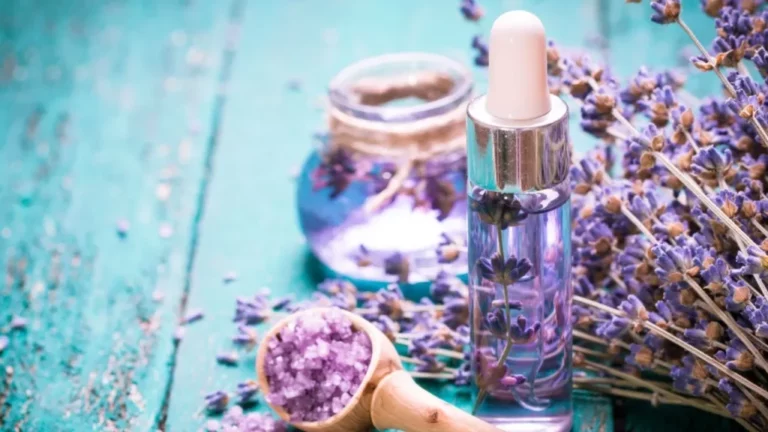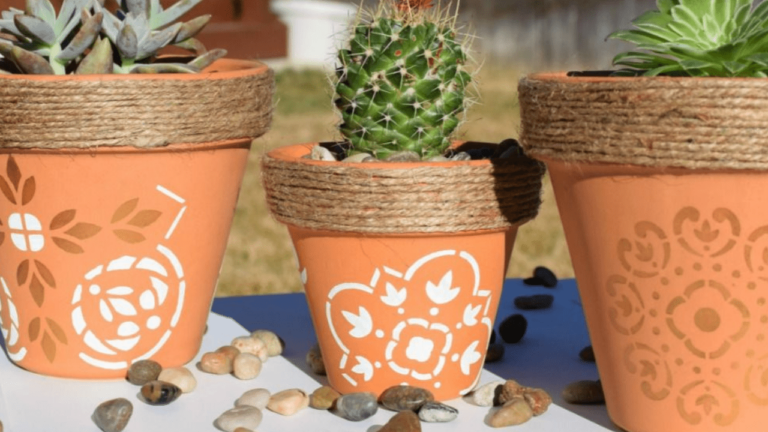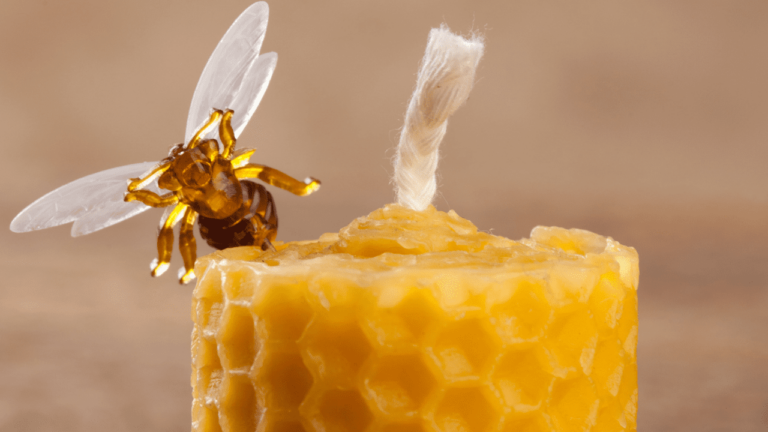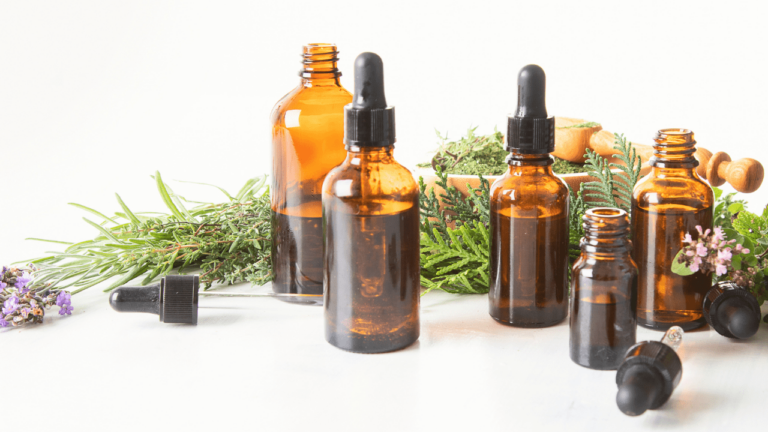Natural Insect Repellent: How to Make Bug Spray with Essential Oils
Bug spray is not only an item you should have in your house. It’s also a natural and safe method to keep bugs out of your home.
This basic recipe for a bug spray can be altered and adapted to meet your needs by adding different essential oils or changing the other ingredients.
Bugs are irritating, gross, and just plain annoying. That’s why having homemade bug spray in your arsenal is never a bad idea!
Benefits Of Using This Bug Spray Essential Oil

Straightforward To Prepare
It only takes 2 minutes to mix everything by shaking it up. Simple!
inexpensive
The initial investment in a collection of essential oils won’t be small. However, after you’ve paid for them, they’ll serve you well for quite some time. There is only a minimal amount of each ingredient required for this dish.
All-natural
There is no DEET or other chemical sprays used in this recipe. Oils extracted from these natural sources are known as essential oils. It is the most natural thing possible, right?
Safe for children
In this formula, the essential oils are diluted to a safe level and can be used on children. However, infants under two years old should not be exposed to oils.
If you need to use insect spray on your babies, you need to spritz it on your hand and rub it on their legs instead of spraying it directly on their faces.
Very efficient
The key is that it performs as intended. We’ve found mosquito sprays made with essential oils very effective over the previous three years.
Plants and herbs have been used for ages to keep insects at bay. The essential oils, which are distilled from these plants, are equally effective.
Read More:Stress Relief Sugar Scrub with Essential Oils
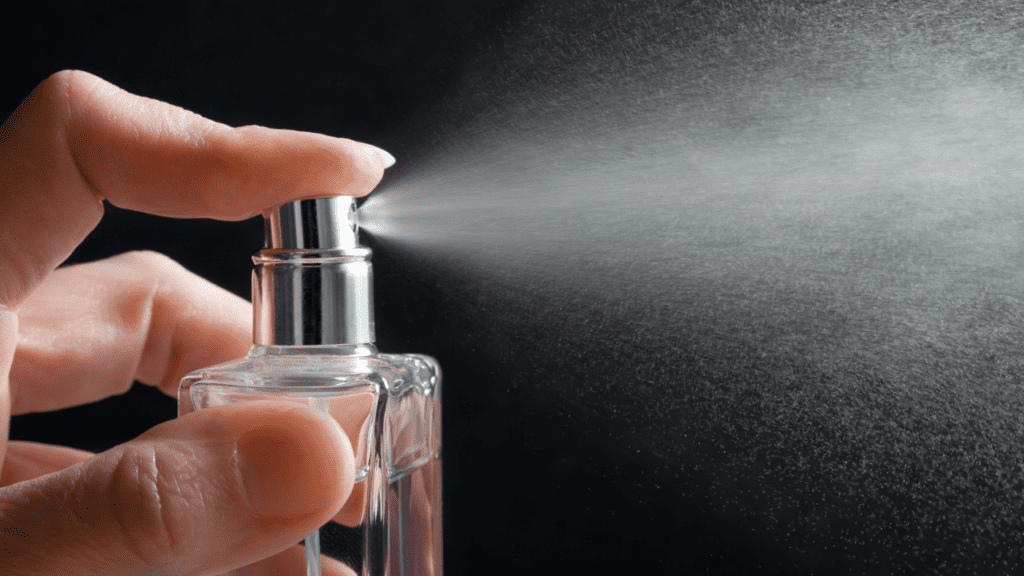
Ingredients and Procedures
Witch Hazel or High-Proof Vodka
In this preparation, the essential oils that keep mosquitoes away are applied to the skin in conjunction with a carrier, which can be a high-proof vodka or witch hazel. Verify that a preservative is listed as an ingredient in the witch hazel you intend to use (most do).
Vodka (or other high-proof alcohol) can help ease the sting of a minor insect bite.
Shield Nature Shield Essential Oil Blend Or Me
Using a pre-mixed combination of essential oils is more cost-effective than purchasing the oils separately.
Here’s when a bug-repelling blend like Plant Therapy’s kid-friendly Shield Me Blend or Nature Shield Blend comes in handy.
Shield Me is a blend of five bug-repelling essential oils designed with kids in mind (but adults can use it, too): A mix of citronella, grapefruit, bourbon geranium, rose, and patchouli.
The Nature Shield Blend contains essential oils to protect your skin from mosquito bites; however, it should not be used on or near young children but is fine for adults. Patchouli, catnip, cedar wood of the Virginia variety, geranium of Egypt, lemon grass, globulus eucalyptus, lavender, and tea tree oil.
When administering essential oils topically, they must first be diluted. For this, we dilute the glycerin with witch hazel or vodka and apply it topically.
Glycerin or Oil
Essential oils are diluted and dispersed with vegetable glycerin or oil. Glycerin is a nourishing humectant that adds no bulk to the airy spray.
Oils such as olive oil, jojoba oil, and fractionated coconut oil (a liquid form of coconut oil) can substitute for vegetable glycerin if you can’t find any. Aloe vera gel is another alternative.
Make sure the aloe vera gel you use has a preservative in it if you plan on using it. Fresh plant gel spoils quickly, so don’t use it.
Vanilla Extract
Vanilla extract’s presence may repel bugs (mosquitoes, gnats, etc.) because they detest the extract’s taste and smell. Make sure the vanilla extract in this recipe is 100 percent pure, with no other sweeteners or flavors. The pure vanilla extract should include nothing but vanilla beans and alcohol. We recommend adding a half spoonful for the smell.
A Guide to the Safest and Most Efficient Use of Essential Oils
Always keep this spray handy.
Oils used in aromatherapy are 100% natural and very evaporative due to their volatility. A homemade bug spray created with essential oils can only keep mosquitoes away for around half an hour to an hour, but a commercial insect spray would keep them away for hours. This necessitates a fresh application at regular intervals. Using this spray only for brief periods outside or when frequent reapplication is possible is recommended.
Dilute Essential Oils
Essential oils should never be used undiluted. This recipe was inspired by one found at Plant Therapy and called for diluting the essential oils by around 2% with witch hazel and oil.
Be Careful Around Pets
Essential oils are powerful, so it’s important to use caution around dogs. You won’t want to use these essential oils near your pet dogs and cats.
Other Effective Essential Oils To Try
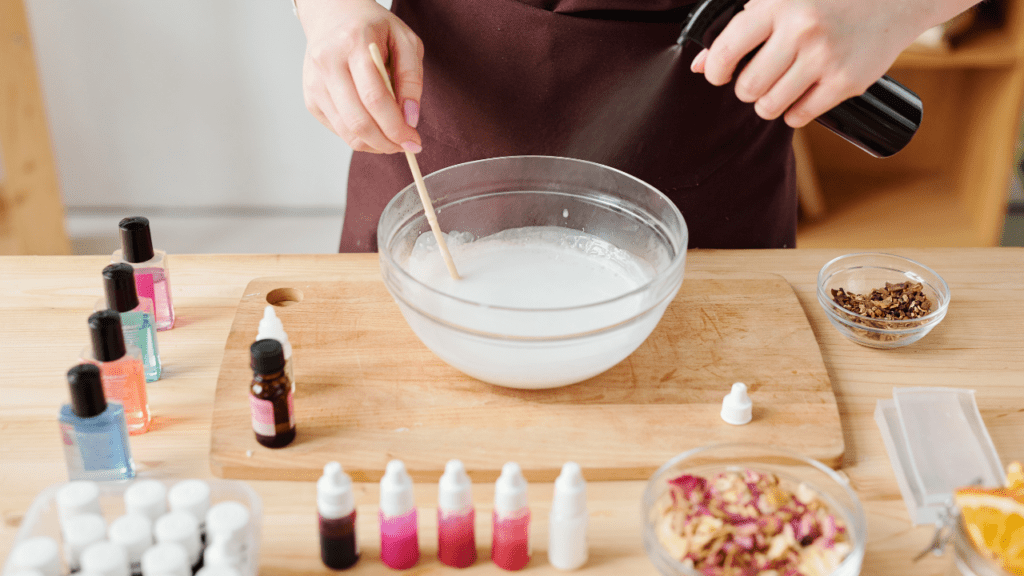
There is a lengthy list of essential oils with insect-repelling properties if you want to use oils other than those called for in the recipe. You can try out different oil combinations to find one that smells nice to you and has outstanding results in your location.
It takes around 105 drops of essential oil, or roughly a 3% concentration, to fill a 4-ounce bottle with this homemade bug spray. When adjusting the strength of a mix, don’t go any higher than that amount of drops.
Cedarwood oil. It’s common knowledge that moths can be deterred by storing clothing or other items in a cedar chest or hanging them from cedar hangers. The oil itself can have the same effect by following the same principle.
Cinnamon oil. Extensive research has proven that this potent oil repels mosquitoes and kills them and their eggs.
Peppermint oil is often known as citronella oil. You may be familiar with citronella candles for their ability to deter mosquitoes, but did you know that the oil extracted from these candles can be utilized in bug sprays and balms?
Lavender oil. One study found that the aroma of lavender and rosemary, eucalyptus, and thyme oil was effective at deterring mosquitoes.
Lemon Eucalyptus oil. When used at a concentration of 32 percent, Lemon Eucalyptus essential oil (eucalyptus citriodora) is an efficient mosquito repellant. I wouldn’t put my skin through being sprayed with such a high concentration of essential oils, but it could be used on colorfast fabrics.
Read More:Stress Relief Sugar Scrub with Essential Oils
Lemongrass oil
Lemongrass essential oil, like many others, has been demonstrated to deter pests effectively.
Neem oil
The study concludes that this oil does have some repelling effects, but they are not as strong as those offered by other solutions. On top of that, most neem oils are not 100% neem but rather a combination of other substances.
Peppermint oil
Insects, especially spiders, are repelled by the pungent odor of peppermint, another member of the mint family. However, the fragrance does not last long and must be reapplied frequently.
Tea Tree Oil
Studies have shown that tea tree oil, also known as Melaleuca, is effective at warding off mosquitoes, bush flies, and biting midges.
Vanilla extract
Initially, we didn’t think much of this story. On the other hand, a combination of vanilla extract and water serves as an effective insect repellent. The added benefit is that you’ll have that fresh-from-the-oven scent.
How much essential oil to water for bug spray?
A safe and effective ratio for making bug spray with essential oils is 10-15 drops of essential oil per 1 ounce (30ml) of water. However, some essential oils can be irritating to the skin, so it’s important to do a patch test and adjust the concentration as needed. Water-based bug sprays may not be as effective as those with other ingredients, so consider experimenting with different recipes.
Which essential oil is good for insect repellent?
Some essential oils that are effective as insect repellents include citronella, peppermint, lemongrass, eucalyptus, and tea tree oil. Dilute them properly and use in combination with other protective measures, and patch test before use to avoid allergic reactions.


